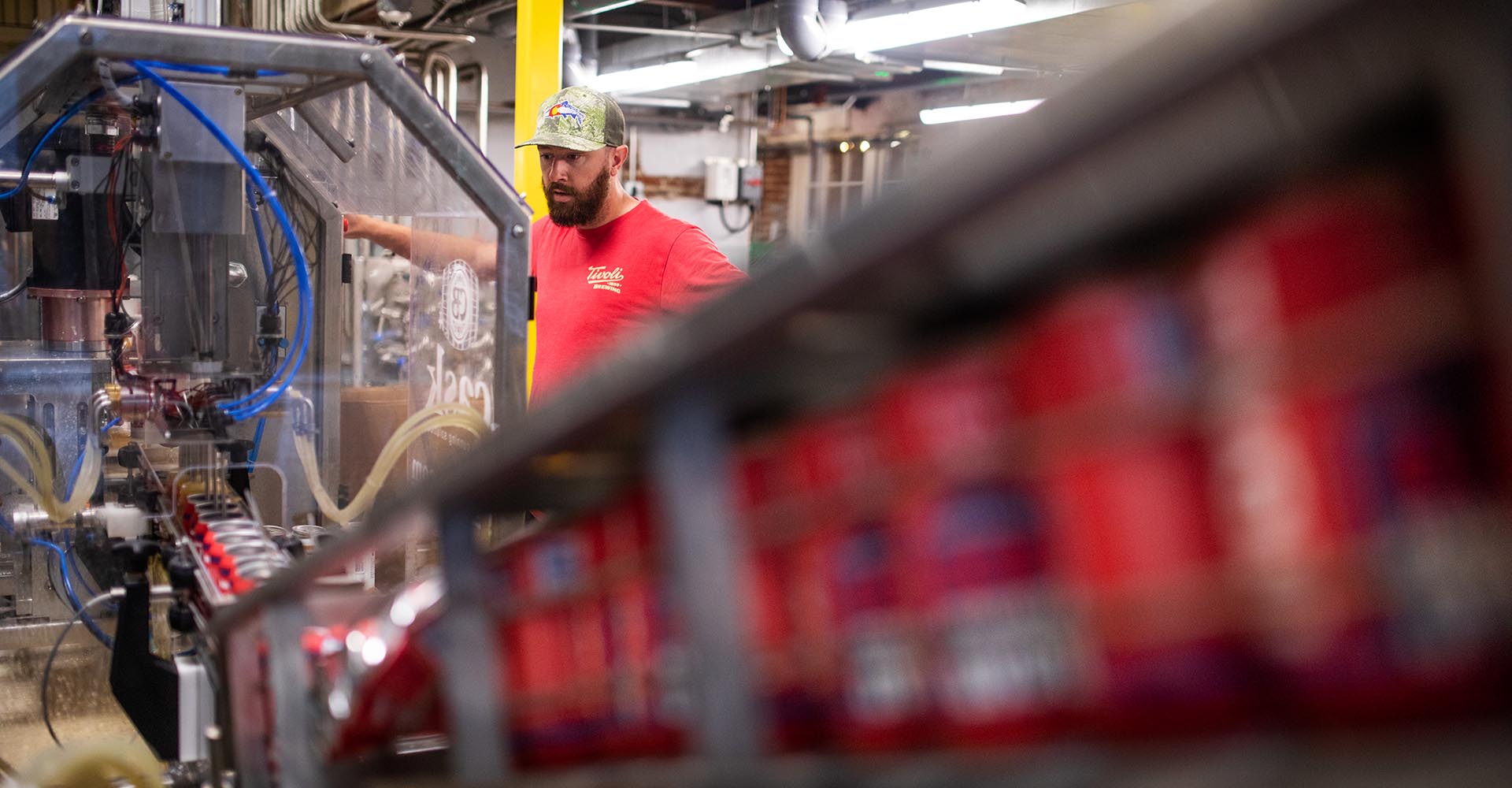COVID-19 brings beer boom and bust
Beer sales are up, but not all breweries are benefiting. Here's what Colorado is drinking and how the state’s fabled craft brewers are innovating to stay afloat.

American beer sales just posted their biggest week since last Fourth of July, with dollar sales in off-premise retailers for the week ending May 9 topping $983.6 million, according to market-research firm Nielsen. Year over year, dollar sales of beer through the week ending May 9 are up 16% to nearly $14 billion.
But beer-industry analysts say the sales of suds really show a tale of two tipples.
While off-premise growth – beer purchases made at grocery or liquor stores – has boomed, the sales increases aren’t making up for the loss of on-premise sales at bars and restaurants. And craft beer brands have been disproportionately affected negatively by COVID-19 shutting down bars, restaurants, taprooms and tasting rooms.
“We’re seeing large brewers still selling their full cases fairly well in the liquor stores,” said Scott Kerkmans, professor and head of Metropolitan State University of Denver’s Beer Industry Program. “The small craft breweries that never distributed are the ones who are hurting the most, though – they’re trying to pivot and adapt, but it’s a challenge in the current environment.”
More than 90% of the 8,300 breweries in the U.S. are smaller, independent outlets, defined as producing less than 6 million barrels per year, said Julia Herz, craft-beer program director with the Boulder-based Brewers Association.
During the COVID-19 pandemic, however, the consumer base is reverting to flagship and value brands, she said.
“Those (beer brands) with familiarity and name recognition are showing they have the staying power with sales to weather the storm,” Herz said “Beyond that, some have been able to pivot and are brewing at full capacity while others are struggling. It’s really been kind of hit-or-miss on an individual basis.”

Cheers to innovation
Prior to the pandemic, experts and trade organizations such as the Brewers Association and Colorado Brewers Guild saw increased interest in expertise and innovation.
Trends included juicy and hazy India Pale Ales, pastry stouts and low-/no-alcohol variants appealing to wellness-minded consumers, Herz said.
“Whether that continues remains to be seen,” she said, “but the common denominator in beer no doubt continues to be innovation.”
Kerkmans concurred: “Brewers are some of the most innovative people in the world, so they’re always looking for unique angles.”
For instance, he said, brewers that started up in the past five to 10 years saw the most success from sales in their tasting rooms or taprooms. Those revenue streams are dry for now, and though things are looking up in Denver where a road map for bars and restaurants to phase in expanded outdoor seating is in place, it’s still far from business as usual.
So craft operations are augmenting their business models, Kerkmans said.
Some are distilling ethanol for fellow spirit-makers to convert into hand sanitizer. When the World Beer Cup, originally scheduled for April, shifted to hand sanitizer, brewers were able to create 175 gallons of hand sanitizer, Herz said.
Brewers are finding other creative ways to pay it forward: Paradox Brewing was selling $1,000 gift cards for $900, she said, while Berthoud’s City Star Brewing was offering a “beer-it-forward” initiative to buy a pint for a fellow hophead.
Another option growing in popularity: virtual happy hours, such as MSU Denver’s scholarship-supporting Mug Club.
“We’re seeing people using the digital medium like never before – there are many Zoom and Facebook Live events taking place that connect beer lovers to have a pint with their favorite brewers,” Herz said.

Yes, we can
Through the tumult, one consideration remains constant, however – there’s a clear logistical need to transport beer from there to here.
“Packaging is key to how we get our beer,” Herz said. “If there aren’t growlers or crowlers, it hasn’t stopped enterprising brewers; we’ve even seen sterilized milk jugs being used to safely house carbonated beverages.”
Fortunately for the Tivoli Brewing Co., there’s no need to dip into dairy.
“Our canning line was already going strong before everything hit,” said Ken Hehir, CEO of the storied Auraria Campus partner of MSU Denver’s beer program. “And though it’s not sustainable by itself as a long-term business proposition, it’s keeping us going right now.”
That’s because since the taproom shuttered March 16, the company has seen approximately 80% of its business dry up “essentially overnight,” Hehir said.
Tivoli Brewing was able to focus production on canning, thanks to a donation to the MSU Denver Beer Industry Program from Cask Global Canning Solutions the brewery rents out; that means thirsty Denverites can still head to their local liquor and grocery stores for their favorite Auraria-made suds. The brewery also recently launched pickup orders for kegs and 12- and 24-packs for its four core beers: Helles Lager, Bo Girl Pilsner, Mile Hi Hefeweizen and Mountain Squeeze Juicy IPA; a seasonal Rocky Mountain Radler apple ginger lager; and specialty brews Fallen Heroes, an orange-blonde ale benefiting families of military personnel killed in the line of duty, and Roadrunner Red, proceeds of which support the MSU Denver’s beer program.
Another initiative the Tivoli brew crew is involved in is the Colorado Strong beer project. Organized by the Brewers Guild and the Longmont-based Left Hand Brewing Foundation, more than 125 brewers across the state are cooking up a pale ale from Colorado-sourced ingredients to benefit COVID-19 relief efforts. Though the recipe is the same, each brewer will put its own spin on it; Hehir anticipates that Tivoli’s version will be available in cans and kegs.
“It’s all about getting through things in survival mode right now,” he said. “Who knows what the future will look like? We only know it’ll be different.”
For students in Kerkmans’ homebrewing class this past semester, shifting to that difference involved fermenting their beer, wine, mead and even kimchi at home.
It’s just another way that enterprising beermakers are doing what they’ve always done – making something delicious out of whatever ingredients are at hand.
“Luckily, those studying the beer industry have been as adaptable as the brewers they’ll eventually become,” Kerkmans said. “You have to love the versatility of these folks.”







